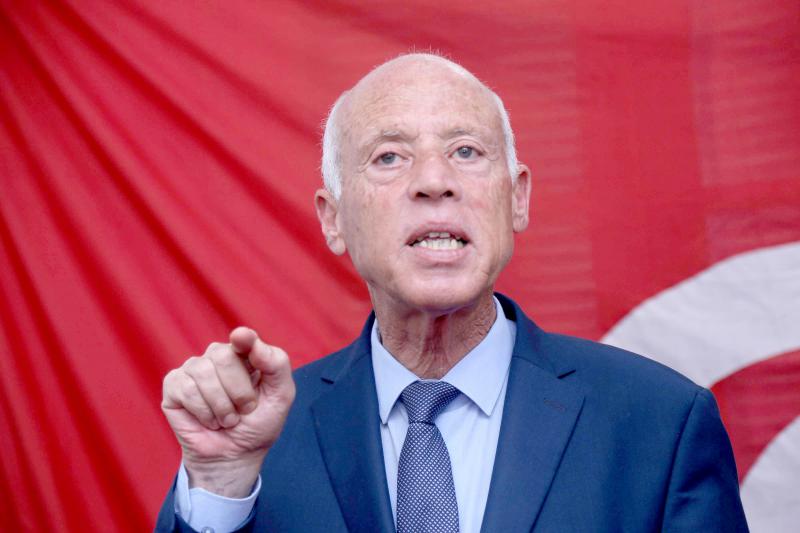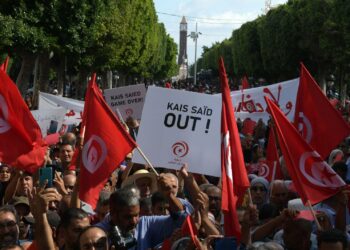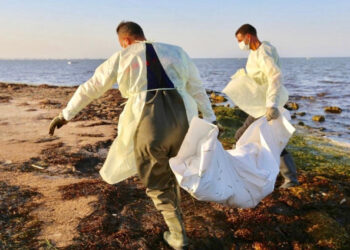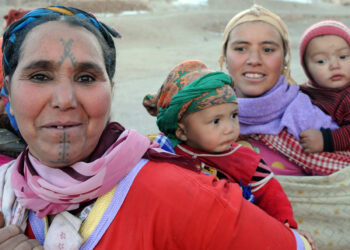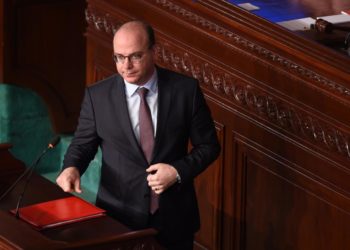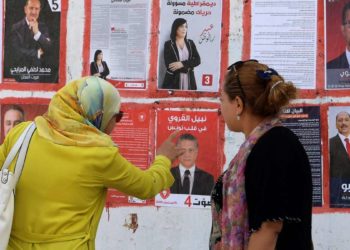President Kais Saied is dismantling Tunisian democracy piece by piece while the world watches. Tunisia, touted as the only successful democracy to emerge from the Arab Spring, is losing its grasp on institutional accountability, political rights, and basic civil liberties.
On July 25, 2021, President Saied removed the prime minister and suspended parliament supposedly for a limited time. And then he extended the suspension. Twice. The country will continue without a functioning legislature until after new elections on December 17, 2022.
The United States and European Union have both expressed hope that these elections will be free and fair, but such hope is painfully misguided.
Tunisia’s Slide Into Authoritarianism
In early February, Saied froze the Supreme Judicial Council and stationed the military at its doors. He has since altered his posture twice: first, he said he would reform the council, and next, he established a new council under his own control.
With no active legislature or independent judiciary to hold him accountable, it seems safe to say that President Saied will complete Tunisia’s slide into authoritarianism. It is time for the US and the international community to act, to press strongly for Tunisia’s return to democracy.
Two truths have become abundantly clear since Saied sacked parliament. First, the president has no intention whatsoever of reforming Tunisian democracy.
Second, Saied is unsure of how to proceed. Despite his insistence that Tunisia, as a sovereign nation, does not require the approval of other countries, he waivered on his dissolution of the judicial council and switched to a reform posture after Western nations criticized the move. Just as quickly, he pivoted again to grant himself excessive power over the judiciary.
US Must Take Action
The United States should have criticized Saied sooner. The time to pressure him is now. Washington should take three immediate steps.
First, the United States should leverage its influence at the International Monetary Fund (IMF) to strictly condition any lending to Tunisia. Saied has wavered on seeking funding from the IMF but most recently has leaned into it fully. As the largest contributor and holder of the most voting shares at the IMF, the United States should make clear that Saied must return to democracy.
Secondly, the United States should condition bilateral foreign assistance. It provided Tunisia with $280 million in aid in 2020, $115 million of which was dedicated to Peace and Security, $78 million to Democracy, Human Rights and Governance, and $50 million to economic development. Removing US aid will ensure that pressure on Saied grows.
Finally, America should work in tandem with key European allies. France, Italy, Germany, and Spain are all top-five trade partners for Tunisian exports. Taking multilateral action will signal to Saied that the international community, not just the United States, expects a swift reinstatement of parliament and an independent judiciary body.
Restoring Functioning Democracy
There is concern that such threats may send Saied running into the arms of his autocratic neighbors. But aid from the Gulf alone is not enough to provide Tunisia with what it needs.
The US voice is strong and will be even stronger if action is coordinated with its allies. The EU has a vested security interest in a stable Tunisia considering its close geographic proximity and deep ties to France. If the US and EU work together, Saied will have no choice but to pay attention and restore a functioning democracy.
No democratic puzzle is complete without accountability. Without a legislature, independent judiciary, or truly free press in Tunisia, it falls to the international community to hold Saied accountable.
The time for talking has long passed; Saied has not listened.
Now, while he still recognizes the need for international assistance to end the economic crisis, is the time to impose tangible costs on his government and ensure that all the pieces of Tunisian democracy will be put together again.
Disclaimer: The views and opinions expressed here are those of the author and do not necessarily reflect the editorial position of The Globe Post.

